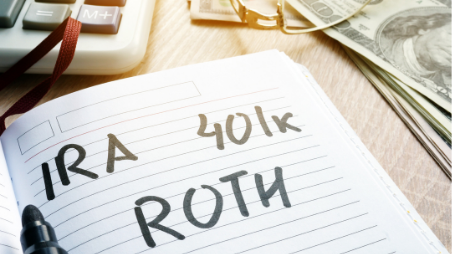Upon retiring or separating from service you need to decide whether to leave your 401(k) or other qualified retirement plan with your former employer (if possible), or roll it over to an IRA? Most people roll their funds into an IRA, but before making a decision consider the following factors:
Pros:
Account Consolidation
Moving one or more retirement accounts into an IRA reduces the probability of losing track of your investments. Neglecting old accounts can result in a mishmash of investments, including redundant positions or asset allocations that are out of line with your overall risk tolerance and financial planning goals. By consolidating accounts, it is easier to manage investments and track account performance.
Investment Selection
Most employer retirement plans offer a limited selection of investment options, specifically with bond and alternative investment funds. As you approach retirement, you’ll want to shift towards a more conservative investment allocation which may require a broader menu of bond or alternative investment options.
Fees
Since there are often limited investment options in employer plans, you’re subject to the expense ratios of a relative handful of funds offered by the plan. Your retirement plan’s fund selection may feature investments with higher expenses than you may find with a similar investment in an IRA. Employer plans have administrative fees. Some generous employers will pick up the fees, but others may pass the costs along to you in the form of higher fund expense ratios.
Cons:
You Want to Retire Early
If you plan to retire early, it may be a good idea to keep your 401(k) if you need to access the money. Upon separation of service, you can access the funds penalty free at age 55. However, distributions from an IRA are subject to a 10% penalty until age 59.5.
You Want to Retire Late
Upon reaching age 72, you are subject to Required Minimum Distributions (RMDs) from your IRA or 401(k), which are subject to income taxes. However, if you’re still employed (and less than a 5% owner of the company) your 401(k) is not subject to the RMD rules. This means that you can continue to defer additional taxes until you retire.
Loss of Creditor Protection
Assets in 401(k) and other qualified retirement plans are protected from creditors. If someone wins a judgment against you in a personal injury lawsuit, your retirement account is exempt from the lawsuit. In some states, this is a moot point. For example, New York extends creditor protections to IRAs. Some states offer no protection or only exempt an amount necessary to support you in retirement.
The question of whether to leave your 401(k) with your former employer or roll it into an IRA depends on your personal needs, your employer’s plan policies, as well as your plan’s internal expenses. Review all the potential costs and benefits before making a rollover decision.
PLEASE SEE IMPORTANT DISCLOSURE INFORMATION HERE.





